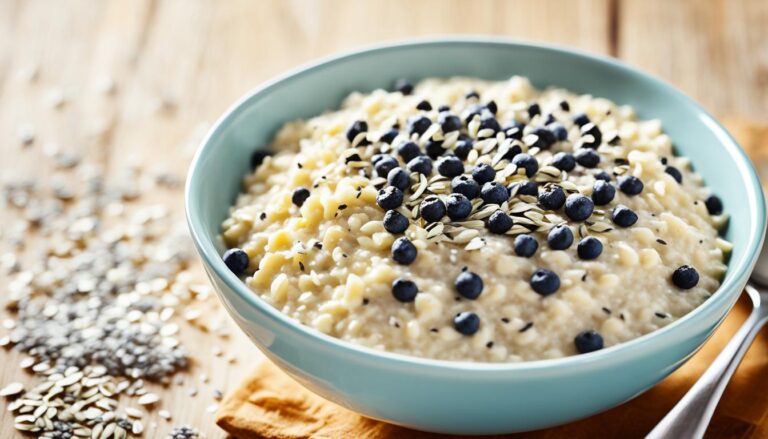Do you want to unlock the secret to a healthy heart and overall wellness? Look no further than your plate. Healthy eating for a healthy heart is not just a catchy phrase, but a science backed approach to ensuring the well-being of one of our most vital organs.
But what exactly is a heart healthy diet? And how can nutrition play a significant role in maintaining cardiovascular health? Let’s embark on a gastronomic journey that will leave you not only satisfied but also with a deeper understanding of the connection between nutrition for a healthy heart and overall well-being.
Understanding Heart Health and Nutrition
In this section we will delve into the vital role of the heart in overall health and well being. The heart is a remarkable organ that plays a central role in maintaining cardiovascular health. It functions tirelessly, pumping blood and oxygen to every part of the body, ensuring that all organs and tissues receive the nutrients they need.
The heart’s importance cannot be overstated. It serves as the core of our circulatory system, supplying oxygen and nutrients to all cells while removing waste products. Without a healthy heart, our entire body suffers.
But what impact does our diet have on heart health? The answer is significant. The food we eat plays a key role in supporting cardiovascular well being. A heart-healthy diet not only nourishes our body but also helps reduce the risk of developing heart disease and other cardiovascular ailments.

Proper nutrition is crucial for maintaining cardiovascular health. By consuming a diet that is rich in heart-healthy foods, we can support the optimal functioning of our heart and ensure its longevity.
Next let’s explore in more detail the links between diet and heart health, and how we can make informed food choices to promote a healthy heart.
Healthy Eating for a Healthy Heart
In this section, we will explore effective strategies for heart healthy eating. Maintaining a healthy heart requires a balanced diet rich in essential nutrients. By incorporating heart healthy foods into your meals, you can support cardiovascular wellness and reduce the risk of heart disease.
Key Nutrients for a Heart Healthy Diet
When it comes to heart health, certain nutrients play a crucial role in promoting overall well-being. These heart healthy nutrients include:
- Omega-3 fatty acids: Found in fatty fish like salmon, mackerel, and sardines, omega-3 fatty acids can help reduce inflammation and lower the risk of heart disease.
- Fiber: Incorporating fiber-rich foods like whole grains, fruits, vegetables, and legumes into your diet can support heart health by reducing cholesterol levels and maintaining healthy blood pressure.
- Antioxidants: Antioxidant-rich foods, such as berries, dark chocolate, and green tea, can help protect against oxidative stress and inflammation, both of which contribute to heart disease.
- Plant sterols: Plant sterols, found in foods like nuts, seeds, and plant oils, can help lower LDL cholesterol levels, reducing the risk of heart disease.
- Potassium: Consuming potassium-rich foods, such as bananas, oranges, and leafy greens, can help regulate blood pressure and support heart health.
- Calcium: Calcium is essential for maintaining strong bones, but it also plays a vital role in cardiovascular health. Dairy products, fortified plant-based milks, and leafy greens are excellent sources of this heart-healthy nutrient.
By incorporating these key nutrients into your diet, you can optimize heart health and support overall wellness.
Identifying Heart-Healthy Foods and Ingredients
Recognizing heart-healthy foods and ingredients is essential for crafting a heart healthy diet. Here are some tips to help you identify and incorporate heart healthy choices:
- Choose lean proteins: Opt for lean meats like skinless poultry, fish, and legumes instead of fatty cuts of meat. These protein sources are lower in saturated fat and cholesterol, making them heart-healthy options.
- Embrace whole grains: Swap refined grains for whole grains like oats, quinoa, and brown rice. Whole grains are rich in fiber, vitamins, and minerals, making them excellent choices for heart health.
- Go for colorful fruits and vegetables: Incorporate a variety of colorful fruits and vegetables into your meals. These vibrant options are packed with vitamins, minerals, and antioxidants, all of which support heart health.
- Use heart-healthy cooking oils: Opt for heart-healthy oils like olive oil, avocado oil, and canola oil when cooking. These oils are rich in unsaturated fats, which can help improve cholesterol levels and reduce the risk of heart disease.
- Limit sodium intake: Keep an eye on your sodium intake and try to minimize the use of high-sodium ingredients like processed meats, canned soups, and prepackaged snacks. Opt for herbs, spices, and natural flavorings to enhance the taste of your meals instead.
By being mindful of these guidelines and incorporating heart-healthy foods and ingredients into your diet, you can take significant steps toward maintaining a healthy heart.

Cardiovascular Health Through Nutrition
In this section, we will further explore the crucial connection between nutrition and cardiovascular health. A heart-healthy diet plays a significant role in supporting overall heart health and reducing the risk of cardiovascular diseases. By making specific dietary choices, you can nourish your heart and promote its well-being.

Proper nutrition is essential for maintaining cardiovascular health. A well-balanced diet that incorporates key nutrients can help lower cholesterol levels, control blood pressure, and reduce inflammation, which are all vital factors in preventing heart disease.
Consuming foods that are rich in antioxidants, fiber, and essential vitamins and minerals supports optimal cardiovascular function and helps protect against the development of conditions such as atherosclerosis and hypertension.
By focusing on nutrition for heart health, you can empower yourself to make choices that benefit your cardiovascular system. Creating a heart-healthy diet that includes a variety of fruits, vegetables, whole grains lean proteins, and healthy fats ensures that your body receives the nutrients it needs to maintain a strong and resilient heart.
Foods for Heart Health What Should Be On Your Plate
When it comes to promoting heart health, the food you eat plays a crucial role. Incorporating heart-healthy foods into your daily diet can have a significant impact on your cardiovascular wellness. In this section, we will explore three key categories of heart-healthy foods: whole grains leafy greens, and foods rich in omega-3 fatty acids.
Incorporating Whole Grains into your Heart Healthy Regimen
Whole grains are an essential component of a heart-healthy diet. They are packed with fiber, vitamins, and minerals that support cardiovascular health. Incorporating whole grains into your meals can help reduce the risk of heart disease by lowering cholesterol levels and promoting healthy blood pressure.
Some excellent whole grain options to consider include:
- Quinoa
- Brown rice
- Oats
- Whole wheat bread
- Barley
These whole grains can be enjoyed in a variety of dishes, such as salads, stir-fries, and pilafs, providing both flavor and heart-protective benefits.
Leafy Greens and their Cardiovascular Benefits
Leafy greens are powerhouses of nutrition that can support heart health. They are rich in antioxidants, vitamins, and minerals, and they offer numerous benefits to the cardiovascular system. Leafy greens are known to reduce inflammation, improve blood vessel function, and lower the risk of heart disease.
Include these leafy greens in your diet for their heart-healthy properties:
- Spinach
- Kale
- Swiss chard
- Arugula
- Collard greens
Whether in salads, soups, or smoothies, these greens are versatile and delicious additions to your heart healthy meals.
The Importance of Omega-3 Fatty Acids from Fish
Omega-3 fatty acids are essential for maintaining a healthy heart. These healthy fats have been shown to reduce inflammation, lower triglyceride levels, and protect against heart disease. One of the best sources of omega-3 fatty acids is fish.
Incorporate these fish varieties into your diet to reap the heart-health benefits:
- Salmon
- Mackerel
- Sardines
- Tuna
- Trout
You can enjoy these fish options grilled, baked, or broiled for a heart-healthy and delicious meal.

By including these heart-healthy foods in your diet, you can make significant strides in supporting your cardiovascular wellness. Consult with your healthcare provider or a registered dietitian to develop a personalized heart-healthy eating plan tailored to your specific needs.
Heart-Healthy Recipes and Meal Planning
Incorporating heart-healthy recipes into your meal planning is a great way to support your cardiovascular health. By designing a diet rich in cardiovascular nutrition and following proper preparation techniques, you can maximize the heart health benefits of your meals.
Designing a Diet Rich in Cardiovascular Nutrition
To start incorporating heart-healthy recipes into your meal planning, it’s important to focus on nutrient-dense foods that are good for your heart. Here are some key tips to keep in mind:
- Choose lean sources of protein, such as skinless poultry, fish, legumes, and low-fat dairy products, to reduce saturated fat intake.
- Incorporate a variety of colorful fruits and vegetables into your meals to ensure you’re getting a wide range of heart-protective vitamins, minerals, and antioxidants.
- Opt for whole grains, such as whole wheat bread, brown rice, and oats, which are rich in fiber and can help lower cholesterol levels.
- Include sources of healthy fats, such as avocados, nuts, seeds, and olive oil, which provide omega-3 fatty acids and can help improve heart health.
- Limit your intake of sodium by seasoning your meals with herbs, spices, and other flavor-enhancing ingredients instead of salt.
By following these guidelines, you can create a well-rounded and heart-healthy diet that supports cardiovascular health.
Preparation Tips for Maximized Heart Health Benefits
Preparing your meals in a heart-healthy way is just as important as choosing the right ingredients. Here are some preparation tips to help maximize the heart health benefits of your meals:
- Opt for cooking methods that require less added fat, such as grilling, baking, steaming, or sautéing with minimal oil.
- Use herbs, spices, and citrus juices to add flavor to your dishes instead of relying on high-sodium seasonings or condiments.
- Trim visible fat from meats and remove poultry skin to reduce saturated fat intake.
- Limit the use of high-fat sauces, dressings, and toppings in your recipes.
- Choose cooking oils with heart-healthy fats, such as olive oil or canola oil, for added flavor and nutritional benefits.
By implementing these preparation tips, you can ensure that your heart-healthy meals are not only nutritious but also delicious.
| Recipe | Ingredients | Preparation Time |
|---|---|---|
| Grilled Salmon with Quinoa and Roasted Vegetables | Salmon fillets, quinoa, mixed vegetables such as bell peppers, zucchini, and onions, olive oil, lemon juice, garlic powder, salt, and pepper | 30 minutes |
| Spinach and Berry Salad with Balsamic Vinaigrette | Spinach leaves, mixed berries such as strawberries, blueberries, and raspberries, feta cheese, walnuts, balsamic vinegar, olive oil, Dijon mustard, honey, salt, and pepper | 15 minutes |
| Quinoa Stuffed Bell Peppers | Bell peppers, quinoa, black beans, corn, diced tomatoes, onion, garlic, cumin, chili powder, paprika, salt, and pepper | 40 minutes |
Try incorporating these heart-healthy recipes into your meal rotation to add variety and flavor to your diet. Remember, consistency is key when it comes to maintaining a heart-healthy lifestyle.
Maintaining Heart Wellness Through Lifestyle Choices
In addition to a heart-healthy diet, lifestyle choices also play a crucial role in maintaining heart wellness. The synergy between diet and exercise is essential for optimal cardiac function. By making certain lifestyle modifications, you can further support heart health and reduce the risk of cardiovascular diseases.
The Synergy of Diet and Exercise for Cardiac Function
When it comes to heart health, diet and exercise go hand in hand. A balanced diet provides the necessary nutrients to support the proper functioning of the heart, while regular physical activity helps strengthen the cardiovascular system. The combination of a heart-healthy diet and regular exercise can significantly improve cardiac function and overall heart wellness.
A heart-healthy lifestyle isn’t just about what you eat but also how you move. Incorporating exercise into your daily routine can have a profound impact on your heart health. Dr. Emily Johnson, Cardiologist
Exercise helps lower blood pressure, reduce cholesterol levels, and maintain a healthy weight – all of which contribute to a strong and healthy heart. It increases blood flow, improves heart muscle strength, and promotes efficient oxygen distribution throughout the body. Implementing a well-rounded exercise routine, including cardio workouts, strength training, and flexibility exercises, can ensure comprehensive cardiovascular fitness.
Lifestyle Modifications to Support Heart Health
Aside from diet and exercise, certain lifestyle modifications can further support heart health. Making small changes in daily routines can have a big impact on overall well-being. Here are some key lifestyle modifications to consider:
- Quit smoking or using tobacco products
- Limit alcohol consumption
- Manage stress through relaxation techniques
- Get regular check-ups and screenings
- Prioritize quality sleep and establish a consistent sleep schedule
Adopting these lifestyle modifications can contribute to a heart healthy lifestyle and help prevent the development of cardiovascular diseases. Remember, small changes can lead to significant improvements in heart wellness over time.
By optimizing your heart health through a balanced diet, regular exercise, and lifestyle modifications, you can take proactive steps towards maintaining a healthy heart and overall well-being.
Conclusion
As we reach the end of our journey to optimize wellness through healthy eating for a healthy heart, it’s important to reflect on the key takeaways from this article. Maintaining heart health is crucial for overall well-being and can be achieved through conscious dietary choices and lifestyle modifications.
To maintain heart health, it is essential to prioritize a heart-healthy diet rich in nutrients that support cardiovascular wellness. Incorporating foods such as whole grains, leafy greens, and omega-3 fatty acids from fish can provide significant benefits. These heart-healthy foods not only nourish the body but also reduce the risk of cardiovascular diseases.
To maintain a healthy heart, it’s crucial to make sustainable lifestyle choices. The combination of a nutritious diet and regular exercise can synergistically support cardiac function. Additionally, adopting other positive lifestyle modifications, such as managing stress levels and getting enough sleep, can contribute to overall heart wellness.
Remember, maintaining a healthy heart is a lifelong commitment. By incorporating the heart health tips and strategies shared in this article into your daily life, you can take positive steps towards ensuring your heart’s well-being. Stay motivated, keep making heart-healthy choices, and enjoy the benefits of a strong and healthy heart!





